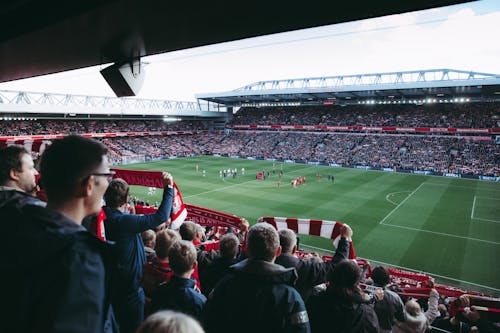The Champions League: The Ultimate Football Extravaganza
Introduction
Welcome to the world of Champions League football, the highest level of the game. We explore every facet of this esteemed competition in this extensive guide, from its background to the excitement of the games, emphasizing why it’s the most sought-after award in club football.
Origins of the Champions League
The Champions League, formerly known as the European Cup, traces its roots back to 1955. Initially, it aimed to promote unity among European nations post-World War II through football. Real Madrid emerged as the inaugural champions, laying the foundation for decades of footballing excellence.
Evolution of the Tournament
Over the years, the Champions League underwent significant transformations, adapting to the changing landscape of football. From expansion of participating teams to lucrative broadcasting deals, the tournament evolved into a global phenomenon, captivating audiences worldwide.
Format and Structure
The current format features a group stage followed by knockout rounds, culminating in a thrilling final. This setup ensures fierce competition among elite clubs, with each match delivering nail-biting suspense and unforgettable moments.
Iconic Moments
From ‘The Miracle of Istanbul’ to Sergio Ramos’ last-minute heroics, the Champions League is replete with unforgettable moments that etch themselves into footballing folklore. These instances of brilliance showcase the tournament’s unmatched drama and excitement.
Notable Teams and Players
Legendary clubs like Barcelona, Bayern Munich, and Liverpool have left an indelible mark on the Champions League, with star players like Lionel Messi and Cristiano Ronaldo dominating the stage with their unparalleled skill and finesse.
Financial Impact
The Champions League isn’t just about glory on the pitch; it’s also a lucrative venture for participating clubs. The substantial prize money, coupled with increased commercial opportunities, underscores the tournament’s economic significance.
Global Fanbase
With billions of viewers tuning in from every corner of the globe, the Champions League boasts a truly global fanbase. Its universal appeal transcends borders, uniting football enthusiasts in a shared passion for the beautiful game.
Social and Cultural Significance
Beyond its sporting prowess, the Champions League serves as a cultural phenomenon, bringing people together and fostering camaraderie across diverse communities. It’s more than just a football tournament; it’s a celebration of human spirit and achievement.
Challenges and Controversies
Despite its acclaim, the Champions League isn’t immune to controversies, ranging from financial disparities to allegations of match-fixing. These challenges underscore the need for constant vigilance and reform to uphold the tournament’s integrity.
Read More: Unveiling the Excitement: A Deep Dive into Premier League Football
Future Prospects
As football continues to evolve, the Champions League faces new opportunities and challenges. Innovations like VAR and expanded formats promise to enhance the spectacle while ensuring fair play and transparency.
Frequently Asked Question
How many Champions League titles has Real Madrid won?
Real Madrid is now the most successful club in the history of the Champions League after winning the competition a record 13 times.
With how many goals in a single Champions League season, who holds the record?
With an incredible 17 goals in the 2013–2014 Champions League season while playing for Real Madrid, Cristiano Ronaldo now owns the record for most goals scored in a single season.
Is there a team that has won the Champions League three straight times?
Yes, under Zinedine Zidane’s leadership, Real Madrid accomplished this incredible accomplishment by winning the Champions League every year from 2016 to 2018.
What is the Champions League’s UEFA coefficient?
A club’s Champions League seeding and group assignment are decided by the UEFA coefficient, which takes into account how well the team performs in European tournaments over a given time frame.
How are the Champions League games planned?
During the group stage and knockout stages, Champions League matches are usually scheduled on Tuesdays and Wednesdays. To suit international viewers, matches start at different times.
What would happen if there is a tie in the Champions League final?
If there is a tie in the Champions League final, extra time and, if needed, a penalty shootout will be used to decide the victor.
Conclusion
In conclusion, the Champions League is the height of footballing perfection, enthralling spectators across the globe with its unique combination of talent, drama, and unpredictable play. Showcasing the finest that football has to offer, the event has progressed continually from its modest origins to its current stature as a worldwide sensation.
It is clear that the Champions League is more than just a tournament when we consider its illustrious past and unforgettable events. It is a celebration of the beautiful game and the fervor it arouses in millions of hearts worldwide. Every iteration of the competition confirms its position as the pinnacle of football success.
As we look to the future, the Champions League promises more thrills and innovations to keep it at the top of the sports world. The Champions League never fails to uplift and bring us all together in our passion for the game, whether it’s via the intensity of the matches, the fandom’s friendship, or the unforgettable moments made on the field.
One thing is clear as we excitedly await the next chapter in this incredible journey: the Champions League will always shine brilliantly as the pinnacle of football brilliance.
